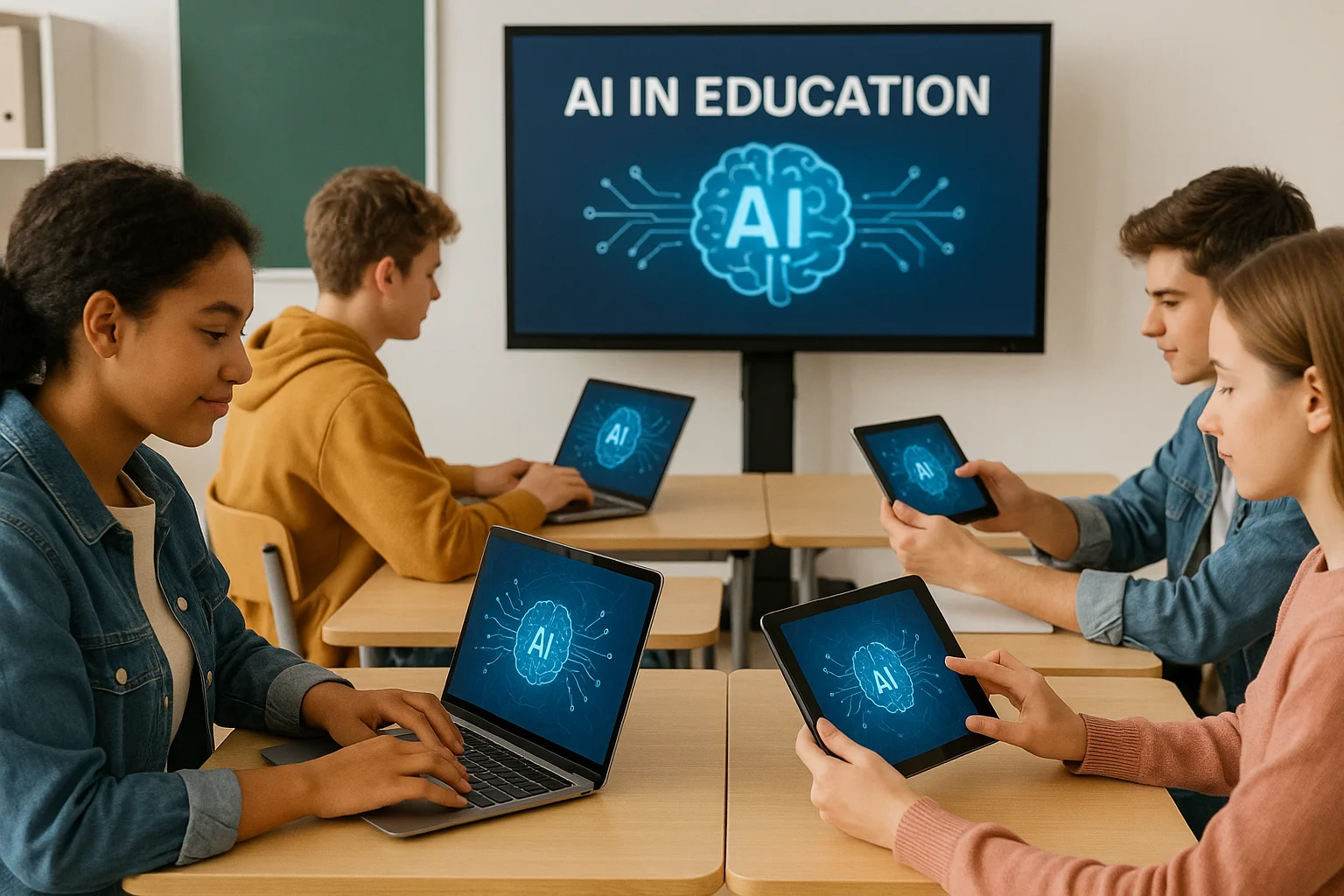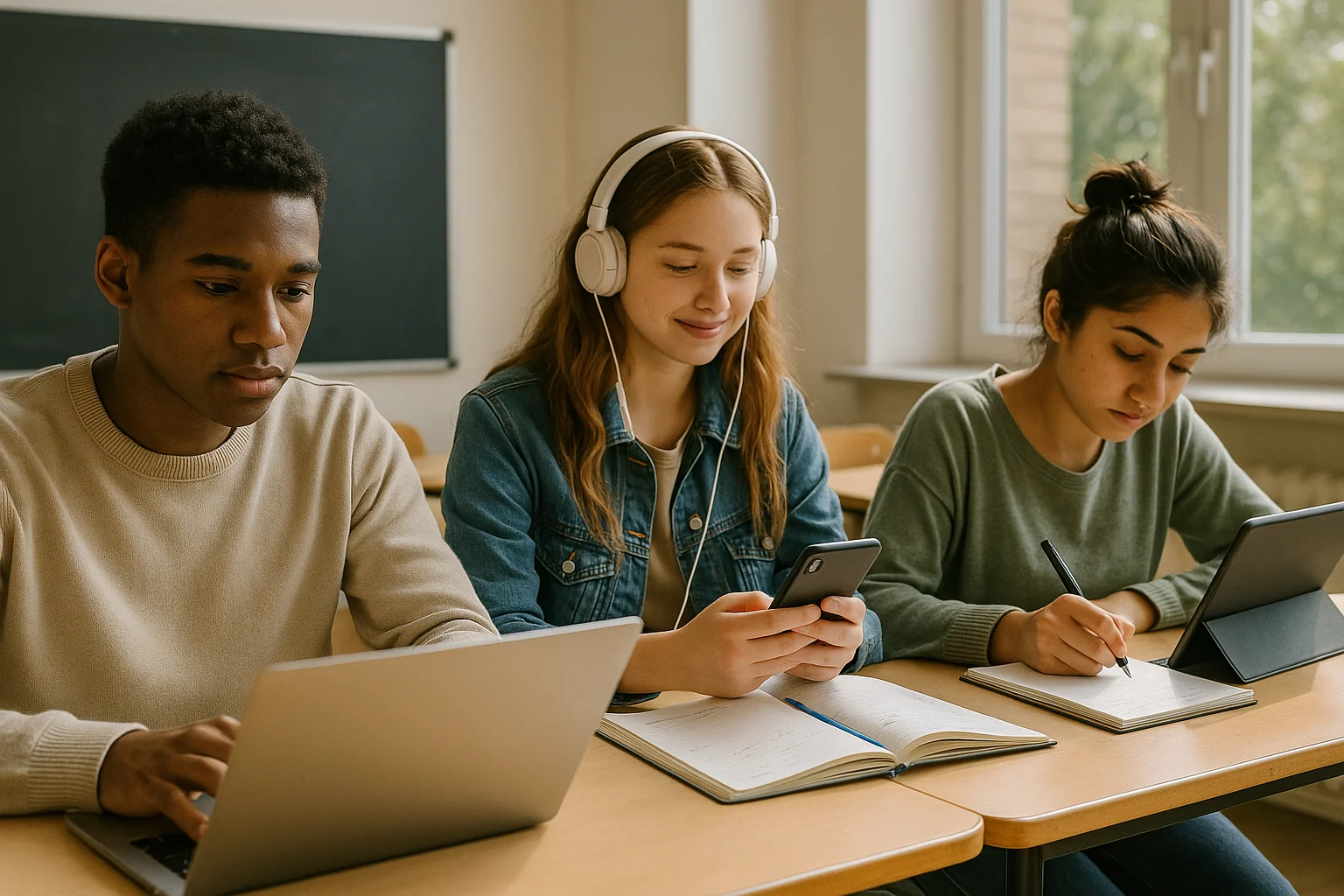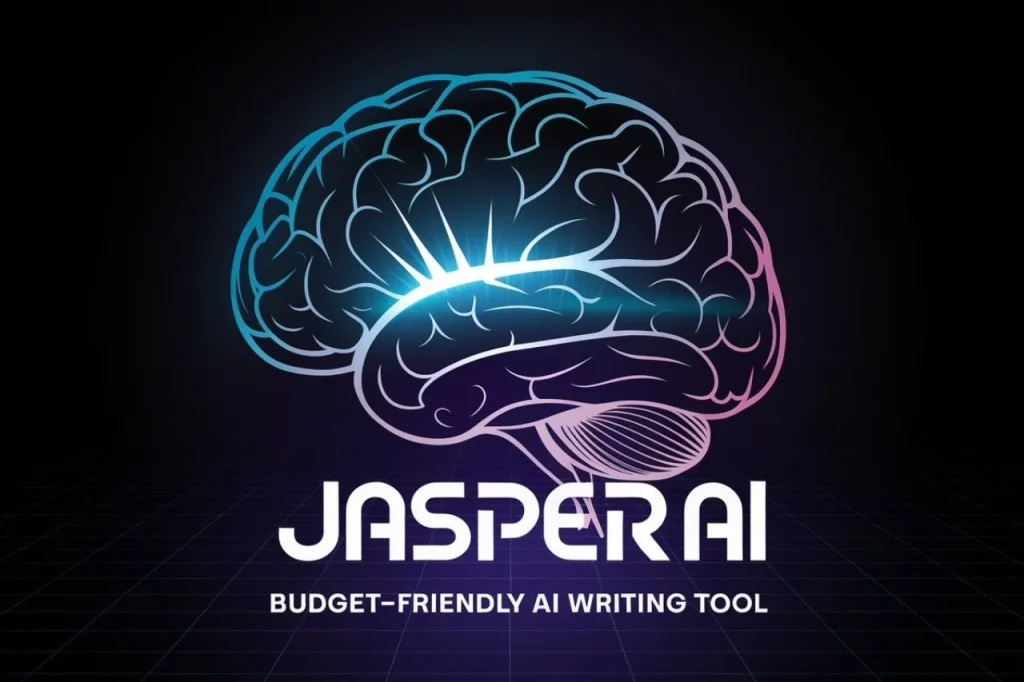ChatGPT Unblocked for School: Safe & Easy Access in 2025
Discover responsible ways to access ChatGPT at school. A comprehensive guide for students, teachers, and administrators to use AI for education.
🤖 Official ChatGPT Website📑 Table of Contents
The Complete Guide to ChatGPT Unblocked for School: Everything You Need to Know
When students and educators search for ChatGPT unblocked for school, they’re looking for practical solutions that work within educational environments. Understanding how to properly implement ChatGPT unblocked for school requires considering both technical access methods and educational best practices. This comprehensive guide covers all aspects of making ChatGPT unblocked for school a reality while maintaining academic integrity.
Why ChatGPT Unblocked for School Matters
The demand for ChatGPT unblocked for school continues to grow as more educators recognize its potential. When properly implemented, having ChatGPT unblocked for school can transform learning experiences. Students seeking ChatGPT unblocked for school often need immediate academic support that traditional resources can’t provide.
Implementing ChatGPT Unblocked for School
Successfully deploying ChatGPT unblocked for school requires careful planning. Schools considering ChatGPT unblocked for school solutions should develop clear usage policies. The process of making ChatGPT unblocked for school accessible involves both technical configurations and educational guidelines.
Understanding ChatGPT Unblocked for School Needs
Before pursuing ChatGPT unblocked for school access, identify specific educational use cases. Different subjects may require different approaches to ChatGPT unblocked for school implementation. The goal of ChatGPT unblocked for school should always be enhanced learning, not academic shortcuts.
Technical Solutions for ChatGPT Unblocked for School
Technical approaches to ChatGPT unblocked for school vary by institution. Some schools implement selective ChatGPT unblocked for school access through approved channels. The safest method for ChatGPT unblocked for school involves official educational partnerships with AI providers.
Educational Framework for ChatGPT Unblocked for School
Creating an educational framework for ChatGPT unblocked for school ensures proper usage. Teachers should receive training on how to integrate ChatGPT unblocked for school into lesson plans. Students need guidance on ethical use of ChatGPT unblocked for school resources.
Benefits of Properly Managed ChatGPT Unblocked for School
- Enhanced Learning Support: When implemented correctly, ChatGPT unblocked for school provides instant academic assistance
- 24/7 Availability: Students can access ChatGPT unblocked for school resources outside classroom hours
- Personalized Help: ChatGPT unblocked for school can adapt explanations to individual learning styles
- Teacher Efficiency: Educators using ChatGPT unblocked for school tools can create materials faster
- Future Skills Development: Experience with ChatGPT unblocked for school prepares students for AI-augmented workplaces
Key Considerations for ChatGPT Unblocked for School
- Academic Integrity: Clear policies must govern ChatGPT unblocked for school usage
- Access Equity: Ensure all students benefit from ChatGPT unblocked for school initiatives
- Quality Control: Monitor the educational value of ChatGPT unblocked for school interactions
- Privacy Protection: Student data must be secure in any ChatGPT unblocked for school implementation
- Continuous Evaluation: Regularly assess the impact of ChatGPT unblocked for school on learning outcomes
| Implementation Level | ChatGPT Unblocked for School Approach | Recommended For | Key Benefits |
|---|---|---|---|
| Basic Access | Limited ChatGPT unblocked for school with teacher supervision | Elementary & Middle Schools | Safe introduction to ChatGPT unblocked for school concepts |
| Moderate Integration | Structured ChatGPT unblocked for school with clear guidelines | High Schools | Balanced ChatGPT unblocked for school usage with oversight |
| Advanced Implementation | Comprehensive ChatGPT unblocked for school across curriculum | Colleges & Universities | Full ChatGPT unblocked for school integration with academic support |
The journey toward effective ChatGPT unblocked for school implementation requires collaboration between educators, administrators, and students. Schools that successfully navigate ChatGPT unblocked for school challenges often see significant improvements in student engagement and learning outcomes. The future of ChatGPT unblocked for school looks promising as more educational institutions recognize its potential when properly managed.
What is ChatGPT?
ChatGPT is an advanced artificial intelligence language model developed by OpenAI that can understand and generate human-like text. It’s designed to assist with a wide range of tasks including answering questions, writing essays, solving problems, coding, and creative writing. Since its launch in November 2022, ChatGPT has become one of the most popular AI tools worldwide, with millions of users across various fields.
For students and educators, ChatGPT offers powerful capabilities that can enhance learning experiences. It can serve as a personalized tutor, research assistant, writing coach, and brainstorming partner. However, its potential for misuse has led many educational institutions to restrict access, creating the need for safe and responsible ways to unblock ChatGPT for school use.

Students using AI technology for enhanced learning experiences in modern classrooms
What Does “ChatGPT Unblocked for School” Mean?
The phrase “ChatGPT unblocked for school” refers to methods and approaches that allow students and educators to access ChatGPT on school networks where it might otherwise be restricted. Schools typically implement content filtering systems that block access to certain websites and online services, including AI tools like ChatGPT, for various reasons we’ll explore in the next section.
When we talk about unblocking ChatGPT, we’re referring to legitimate, ethical approaches that respect school policies while enabling productive use of AI technology for educational purposes. This doesn’t mean circumventing security measures without permission, but rather finding approved ways to integrate AI tools into the learning environment.
Many educational institutions are now reconsidering their stance on AI tools as they recognize the potential benefits for student learning and teacher productivity. The conversation around ChatGPT unblocked for school is evolving from one of restriction to one of responsible integration.
Why Schools Restrict ChatGPT Access
Academic Integrity Concerns
Schools worry that students might use ChatGPT to complete assignments without proper learning, potentially undermining the educational process and assessment validity. This concern is particularly relevant for take-home assignments and research papers where direct supervision isn’t possible.
Data Privacy and Security
Educational institutions have strict data protection obligations, and AI tools may raise concerns about student information privacy and compliance with regulations like FERPA. Schools must ensure that any technology used doesn’t compromise student data security.
Network Management
Schools implement content filtering to manage bandwidth, prevent distractions, and maintain a focused learning environment free from potentially problematic content. AI tools can consume significant bandwidth and might distract from core educational activities.
Potential for Misinformation
While generally accurate, AI models can sometimes generate incorrect or misleading information, which educators may want to prevent students from encountering unsupervised. This is especially important for developing critical thinking skills in younger students.

School IT infrastructure often includes content filtering systems that restrict certain websites and applications
Why Students Want ChatGPT Unblocked
📚 Homework and Research Support
ChatGPT can help students understand complex concepts, brainstorm ideas, and find relevant resources for their assignments. It serves as a 24/7 learning assistant that can explain topics in multiple ways until the student grasps the material. This personalized approach to learning can be particularly beneficial for students who need additional support outside classroom hours.
✍️ Creative Writing and Language Learning
For language arts and foreign language classes, ChatGPT can help with writing structure, grammar correction, vocabulary building, and creative storytelling exercises that enhance language skills. It can provide instant feedback on writing samples and suggest improvements, helping students develop their communication abilities more effectively.
🔬 AI Tutoring for STEM Subjects
In science, technology, engineering, and mathematics, ChatGPT can walk students through problem-solving steps, provide practice questions, and offer alternative explanations for challenging concepts. This supplemental support can be invaluable for students struggling with complex mathematical formulas or scientific principles.

Modern students increasingly rely on digital tools to enhance their learning experience
Real Student Success Stories with ChatGPT
Improved Grades
“Using ChatGPT to explain complex physics concepts helped me raise my grade from a C to an A. The AI broke down difficult topics in ways I could understand.” – Michael, High School Junior
Writing Breakthrough
“As an ESL student, ChatGPT helped me improve my essay writing structure and vocabulary. My English grades improved by 30% in one semester.” – Sofia, College Freshman
Research Acceleration
“ChatGPT helped me organize my research paper and find relevant sources faster. What used to take 3 hours now takes 30 minutes.” – David, Graduate Student

Students report significant academic improvements when using AI tools responsibly
How to Use ChatGPT Unblocked at School (Safe Methods)
1. Using a VPN or Proxy (Ethical Use Only)
Virtual Private Networks (VPNs) can bypass school network restrictions by routing your connection through a different server. However, it’s important to note that many schools prohibit VPN usage in their acceptable use policies. If considering this approach:
- Only use reputable VPN services with strong privacy protections
- Understand that this may violate school policies
- Consider discussing educational needs with school administration first
- Use only for legitimate educational purposes
2. ChatGPT Mirror or Alternative Access Sites
Some websites offer access to ChatGPT through alternative domains or mirror sites that might not be blocked by school filters. These can include:
- Third-party interfaces that connect to the ChatGPT API
- Educational platforms with integrated AI features
- Browser-based tools that provide similar functionality
Always verify the legitimacy and security of these sites before use, as some may pose privacy risks or provide outdated versions of the AI.
3. ChatGPT Mobile Apps and Browser Extensions
If school Wi-Fi blocks ChatGPT, students might access it through:
- Official ChatGPT mobile app using cellular data
- Browser extensions that provide AI assistance
- Progressive web apps that work offline or with limited connectivity
4. ChatGPT Alternatives that Work at School
Many alternative AI tools might not be blocked by school filters and can provide similar assistance:
- Google Bard (now Gemini) – Often accessible through Google ecosystem
- Microsoft Bing Chat – Integrated with search functionality
- Educational AI platforms specifically designed for schools

Students today have multiple ways to access digital tools and resources for learning
Safe AI Tools Similar to ChatGPT for School Use
| AI Tool | Best For | Free Tier | School Accessibility |
|---|---|---|---|
| Claude AI | Reasoning & Long Documents | ✅ Yes | Often Accessible |
| Google Gemini | Research & Integration | ✅ Yes | Usually Accessible |
| Poe.com | Multiple AI Models | ✅ Limited | Sometimes Blocked |
| Perplexity AI | Research with Citations | ✅ Yes | Often Accessible |
| Microsoft Copilot | Productivity & Coding | ✅ Yes | Usually Accessible |
A variety of AI tools are available that offer similar functionality to ChatGPT
Teacher-Approved ChatGPT Prompts for Learning
Research Assistance Prompts
“Explain the causes of World War II in simple terms for a 10th-grade history student”
“Provide three different perspectives on climate change with supporting evidence”
Writing Improvement Prompts
“Review this paragraph and suggest improvements for clarity and grammar”
“Help me create an outline for an essay about renewable energy sources”
STEM Learning Prompts
“Walk me through solving this algebra equation step by step”
“Explain photosynthesis as if I’m a middle school student”
Creative Thinking Prompts
“Brainstorm five unique science fair project ideas about environmental conservation”
“Help me develop characters for a short story about space exploration”
How Schools Can Responsibly Use ChatGPT
For Lesson Planning and Creative Projects
Teachers can use ChatGPT to generate lesson ideas, create engaging activities, develop discussion questions, and design creative projects that align with curriculum standards. This can save valuable preparation time while ensuring lessons remain fresh and engaging for students.
AI-Assisted Student Learning
Implement structured activities where students use ChatGPT as a research tool, writing assistant, or problem-solving partner under teacher guidance and with clear learning objectives. This approach ensures that AI complements rather than replaces traditional learning methods.
Ethical Use Guidelines for Classrooms
Develop clear policies about when and how AI tools can be used, including citation requirements, appropriate use cases, and consequences for misuse. These guidelines should be communicated clearly to both students and parents to ensure everyone understands the expectations.
Critical Thinking Development
Teach students to critically evaluate AI-generated content, identify potential biases or inaccuracies, and use AI as a starting point rather than a final answer. This skill is increasingly important in a world where AI-generated content is becoming more prevalent.

Modern classrooms increasingly integrate technology to enhance the learning experience
Technical Ways to Whitelist ChatGPT for Educational Networks
For school IT administrators and educators advocating for ChatGPT access, here are technical approaches to consider:
Firewall Rules and Domain Whitelisting
IT departments can create exceptions in content filtering systems specifically for educational use of ChatGPT, allowing access while maintaining other protections. This approach enables controlled access to the tool while preserving network security.
Educational Licensing Options
OpenAI offers educational programs and APIs that schools can implement with enhanced privacy and security features designed for educational environments. These enterprise solutions often include additional controls and monitoring capabilities.
Managed Access Solutions
Implement systems that allow teacher-monitored access during specific class periods or for approved educational activities only. This time-based or context-based access ensures that AI tools are used appropriately within the educational framework.
Schools can also consider implementing AI literacy programs that teach students how to use these tools responsibly while addressing concerns about academic integrity. These programs can help students develop the critical thinking skills needed to navigate an AI-augmented world.
Benefits of ChatGPT Access for Students
🚀 Increases Creativity
- Idea Generation: Helps brainstorm project ideas and creative solutions across various subjects
- Writing Assistance: Supports developing writing skills through examples and feedback on structure and style
- Problem-Solving: Offers multiple approaches to complex problems, encouraging flexible thinking
- Personalized Learning: Adapts explanations to individual understanding levels and learning styles
📈 Improves Productivity
- Research Efficiency: Quickly summarizes information and finds relevant sources, saving valuable time
- Time Management: Helps organize thoughts and plan projects effectively with structured approaches
- Skill Development: Provides practice opportunities across various subjects with instant feedback
- 24/7 Availability: Accessible outside classroom hours for continued learning and homework support
🎓 Enhances Understanding
- Concept Clarification: Explains difficult topics in multiple ways until comprehension is achieved
- Real-World Applications: Connects academic concepts to practical situations and current events
- Critical Thinking: Encourages questioning and evaluation of information from multiple sources
- Personalized Pace: Allows students to learn at their own speed without classroom pressure
🌍 Prepares for Future
- Digital Literacy: Develops skills needed for AI-augmented workplaces and modern careers
- Technology Fluency: Builds comfort with advanced tools and systems used in professional environments
- Adaptability: Teaches how to leverage new technologies effectively as they emerge
- Career Readiness: Introduces AI skills valuable across industries and professions

Students who effectively use technology tools often achieve better academic outcomes
Risks and Safety Measures When Unblocking ChatGPT
⚠️ Potential Risks
- Academic Dishonesty: Potential for unauthorized assistance on assignments that undermines learning assessment
- Data Privacy: Concerns about student information handling and potential exposure to third parties
- Misinformation: Possibility of incorrect or biased information presented as factual content
- Over-reliance: Risk of diminished critical thinking skills and independent problem-solving abilities
- Equity Issues: Potential advantages for students with outside access creating unequal opportunities
🛡️ Safety Measures
- Clear Policies: Establish rules for appropriate AI use with specific examples and consequences
- Supervision: Monitor student interactions with AI tools during classroom activities
- Education: Teach critical evaluation of AI-generated content and verification techniques
- Citation Requirements: Mandate disclosure of AI assistance in academic work with specific guidelines
- Alternative Assessments: Design assignments that minimize AI misuse potential through personalized elements
Internal Resources
Best AI Tools for Students
Discover the top AI applications that can help with studying, research, and academic projects while maintaining educational integrity. Our comprehensive guide covers both free and premium options suitable for various learning needs and budgets.
Read More →Free ChatGPT Alternatives for Schools
Explore budget-friendly AI options that provide similar functionality to ChatGPT while addressing educational institution concerns about cost, privacy, and appropriate use in academic settings.
Read More →ChatGPT Study Prompts for Classrooms
Learn effective prompting techniques and ready-to-use templates that maximize ChatGPT’s educational value across subjects. These carefully designed prompts help ensure productive and appropriate AI interactions.
Read More →FAQs About ChatGPT Unblocked for School
Yes, using ChatGPT is legal, but school policies may restrict access on their networks. The legality concerns how it’s used – for learning assistance it’s generally acceptable, but using it to complete assignments without disclosure may violate academic integrity policies. Always follow your school’s specific guidelines regarding AI tool usage, and when in doubt, consult with teachers or administrators about appropriate use cases.
School Chromebooks typically have strict management controls. Your options include: requesting educational access through your teacher or IT department, using approved educational platforms with AI features, accessing ChatGPT through mobile data on a personal device, or exploring school-approved alternative AI tools. Avoid attempting to bypass security measures without permission, as this may violate school policies and potentially result in disciplinary action.
Absolutely! Teachers can effectively use ChatGPT to create lesson outlines, generate discussion questions, develop creative activities, differentiate instruction for various learning levels, and create assessment materials. Many educators find it valuable for saving time on administrative tasks while enhancing instructional quality. When used thoughtfully, ChatGPT can help teachers develop more engaging and personalized learning experiences for their students.
Using VPNs carries several risks including: potential violation of school acceptable use policies, security concerns with free VPN services that may collect data, and the possibility of accessing unsecured networks. If considering a VPN, use reputable services, understand your school’s policies, and prioritize educational use over bypassing restrictions. Always consider discussing your educational needs with school administration before resorting to VPN usage.
Excellent alternatives include: Claude AI for its strong reasoning capabilities and ethical approach, Google Gemini for research integration with Google’s ecosystem, Microsoft Copilot for productivity tasks and Office integration, Perplexity AI for source-cited information with transparency, and specialized educational AI platforms designed specifically for classroom environments with built-in safety features. Each alternative offers unique strengths that may better suit specific educational needs.
Conclusion: Embracing AI Responsibly in Education
ChatGPT and similar AI tools represent a transformative opportunity for education when approached with careful consideration and responsible implementation. Rather than viewing these technologies as threats to academic integrity, educators and administrators can develop frameworks that harness their potential while addressing legitimate concerns about misuse, privacy, and equitable access.
The key to successful integration of ChatGPT unblocked for school environments lies in balanced approaches that combine access with education about ethical use. By teaching students how to leverage AI as a learning tool rather than a shortcut, we prepare them for a future where human-AI collaboration will be commonplace across professions and industries. This preparation is increasingly important as AI technologies become more integrated into workplace environments and daily life.
Schools that develop clear policies, provide guidance on appropriate use, and focus on AI literacy are positioning their students for success in an increasingly AI-augmented world. The goal shouldn’t be to block access entirely, but to create environments where students learn to use these powerful tools responsibly, critically, and effectively. This balanced approach ensures that students benefit from AI assistance while developing the critical thinking skills necessary to navigate an increasingly complex digital landscape.
Ready to Explore Chatgpt Responsibly?
Join the conversation about AI in education and discover how to leverage these tools for enhanced learning while maintaining academic integrity and student safety.
🎓 Educational Resources 🤖 Official ChatGPT


